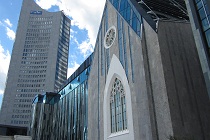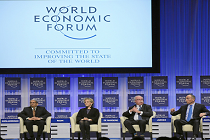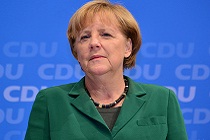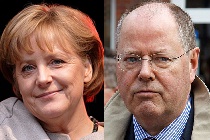Leipzig: from darkness into light
Rajni Bakshi, Senior Gandhi Peace Fellow, was recently at Leipzig in Germany to attend the 4th International Conference on Degrowth. She writes about why Leipzig is reassuring for more than its economic growth
 Courtesy: wikimedia
Courtesy: wikimedia
Rajni Bakshi, Senior Gandhi Peace Fellow, was recently at Leipzig in Germany to attend the 4th International Conference on Degrowth. She writes about why Leipzig is reassuring for more than its economic growth
 Courtesy: remy steinegger / Flickr
Courtesy: remy steinegger / Flickr
German President Joachim Gauck’s visit to India this week is a reminder of how Germany is addressing inequality, with better wages, benefits for the poorest, and other measures. When the gap between the rich and poor is growing globally, it is time for India’s prime ministerial aspirants to also focus on this issue
 Courtesy: www.GlynLowe.com/Flickr
Courtesy: www.GlynLowe.com/Flickr
It may take Chancellor Angela Merkel weeks to negotiate a new coalition, but the vote for stability means that change will only be at the margins of current domestic and foreign policy. Still, the fallout of the election in the EU and beyond, including in India, should not be underestimated
 Courtesy: WikimediaCommons
Courtesy: WikimediaCommons
German foreign policy can be described as one anchored in the European and NATO alliance while being the economic centre of Europe. Yet, any government that comes in after the September 22 elections will be challenged by rapid developments in West Asia and elsewhere in a politically and economically turbulent world
 Courtesy: trendscout::/Flickr
Courtesy: trendscout::/Flickr
All the major economic forces in the world have come together in Africa in a new version of the Great Game. The competition for the continent’s resources will ultimately harm Africa unless Africa uses this opportunity to its advantage and to address its own serious problems.

Amidst myriad country groupings that already exist – BRICS, IBSA, APEC, SCO and many others – a new initiative in the Pacific is looking to integrate more powerful countries to form a multilateral free trade agreement – the Trans Pacific Partnership. How important is this towards the reshaping of trade and power?